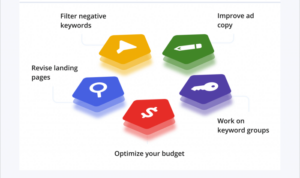Creating B2B Marketing Campaigns dives into the key strategies and tactics essential for driving business growth in the modern landscape. From targeting the right audience to leveraging cutting-edge technology, this guide covers it all with a fresh perspective that resonates with the hip high school crowd.
Get ready to learn how to craft compelling campaigns that make a lasting impact and elevate your B2B marketing game to new heights.
Importance of B2B Marketing Campaigns
B2B marketing campaigns play a vital role in driving business growth and success. These campaigns are specifically tailored to target other businesses, helping to generate leads, increase brand awareness, and ultimately boost sales.
Examples of Successful B2B Marketing Campaigns
One prime example of a successful B2B marketing campaign is Adobe’s “Do You Know What Your Marketing Is Doing?” campaign. This campaign effectively showcased Adobe’s marketing automation software, resulting in a significant increase in leads and conversions for the company.
Another noteworthy example is IBM’s “Smarter Planet” campaign, which focused on showcasing IBM’s technology solutions for businesses. This campaign helped IBM solidify its position as a leader in the tech industry and generated a significant amount of interest from potential clients.
Impact of B2B Marketing Campaigns on Companies
- According to a study by the Content Marketing Institute, 80% of B2B marketers credit content marketing as their most successful lead generation tactic.
- Research by Demand Metric found that B2B content marketing generates 3 times as many leads as traditional outbound marketing, but costs 62% less.
- Effective B2B marketing campaigns can help companies establish thought leadership, build credibility, and drive long-term relationships with clients.
Understanding B2B Target Audience

When it comes to B2B marketing, understanding your target audience is crucial for the success of your campaigns. By identifying and comprehending the needs, preferences, and pain points of your target audience, you can tailor your marketing efforts to resonate with them effectively.
Creating buyer personas is a key strategy in B2B marketing to better understand your target audience. Buyer personas are fictional representations of your ideal customers based on market research and real data. By developing detailed buyer personas, you can align your messaging, content, and solutions to address the specific needs of different segments within your target audience.
Segmentation Strategies for B2B Target Audiences
Segmentation plays a vital role in B2B marketing to target specific groups within your audience effectively. Here are some examples of segmentation strategies for different B2B target audiences:
- Industry Segmentation: Divide your audience based on the industries they belong to, as different industries may have unique challenges and requirements.
- Company Size Segmentation: Segment your audience based on the size of their company, as the needs of small businesses may differ from those of large enterprises.
- Buyer Role Segmentation: Identify and segment your audience based on their role within the company, such as decision-makers, influencers, or end-users.
- Behavioral Segmentation: Segment your audience based on their behavior, such as purchase history, engagement with your content, or response to previous marketing campaigns.
Elements of a Successful B2B Marketing Campaign: Creating B2B Marketing Campaigns
When it comes to creating a successful B2B marketing campaign, there are several key elements that should be considered to effectively reach and engage with your target audience.
Content Marketing
Content marketing plays a crucial role in B2B campaigns as it involves creating and sharing valuable, relevant, and consistent content to attract and retain a clearly defined audience. This can include blog posts, whitepapers, case studies, videos, and more, which help establish thought leadership and build credibility with potential clients.
- Develop a content strategy that aligns with your business goals and target audience’s needs.
- Create high-quality and informative content that showcases your expertise and addresses common pain points of your audience.
- Distribute content through various channels such as your website, social media, and email newsletters to reach a wider audience.
Email Marketing
Email marketing is another essential element of a successful B2B marketing campaign, allowing you to nurture leads, build relationships, and drive conversions through personalized communication. This involves sending targeted and relevant emails to your prospects and clients to keep them engaged with your brand.
- Segment your email list based on demographics, behaviors, and interests to deliver more personalized messages.
- Create engaging email content that provides value to the recipients and encourages them to take action.
- Track and analyze email performance metrics to optimize your campaigns for better results.
Social Media
Social media plays a significant role in B2B marketing by providing a platform to connect with your audience, amplify your brand message, and drive traffic to your website. It allows you to engage with prospects, share valuable content, and build relationships with key decision-makers in the industry.
- Choose the right social media platforms where your target audience is most active and tailor your content accordingly.
- Share a mix of promotional and educational content to keep your audience interested and engaged.
- Interact with your followers, respond to comments and messages, and participate in industry conversations to build trust and credibility.
Personalized messaging in B2B marketing is crucial as it shows your audience that you understand their specific needs and challenges, making them more likely to engage with your brand and ultimately convert into customers.
Leveraging Technology in B2B Marketing Campaigns

In today’s digital age, technology plays a crucial role in enhancing B2B marketing campaigns. By utilizing various tools and systems, businesses can streamline their processes, target the right audience, and achieve better results.
Marketing Automation Tools, Creating B2B Marketing Campaigns
Marketing automation tools like HubSpot, Marketo, and Pardot allow B2B marketers to automate repetitive tasks, personalize communication, and track customer interactions. These tools help in nurturing leads, improving customer engagement, and ultimately driving conversions.
CRM Systems for B2B Campaigns
Customer Relationship Management (CRM) systems such as Salesforce, Zoho CRM, and Microsoft Dynamics enable businesses to manage and analyze customer data effectively. By utilizing CRM systems, B2B marketers can track interactions, segment customers, and personalize marketing strategies based on customer behavior.
AI and Data Analytics in B2B Marketing
Artificial Intelligence (AI) and data analytics play a significant role in enhancing B2B marketing efforts. AI algorithms can analyze large sets of data to identify patterns, predict customer behavior, and optimize marketing campaigns. Data analytics tools like Google Analytics and Tableau provide valuable insights into customer preferences, helping businesses make data-driven decisions for their marketing strategies.
Measuring the Success of B2B Marketing Campaigns
In order to gauge the effectiveness of B2B marketing campaigns, it is crucial to track key performance indicators (KPIs) that provide insights into the campaign’s performance. Analyzing ROI and conducting A/B testing are essential practices to optimize marketing strategies based on data-driven insights.
Key Performance Indicators (KPIs)
- Lead Generation: Measure the number of leads generated through the campaign to assess its impact on potential customers.
- Conversion Rate: Track the percentage of leads that convert into actual sales or business opportunities.
- Customer Acquisition Cost (CAC): Evaluate the cost incurred to acquire a new customer and compare it to the revenue generated.
- Customer Lifetime Value (CLV): Determine the long-term value of acquired customers to assess the campaign’s overall impact.
Tracking and Analyzing ROI
- Use marketing automation tools to track the ROI of B2B campaigns by monitoring key metrics such as website traffic, conversion rates, and customer engagement.
- Analyze the data collected to identify the most effective channels, messaging, and strategies that contribute to the highest ROI.
- Calculate the ROI by comparing the total revenue generated from the campaign to the total costs incurred, including marketing expenses.
A/B Testing and Optimization
- Conduct A/B testing by creating variations of marketing materials (such as emails, landing pages, or ads) to test different elements and determine which performs better.
- Utilize data insights from A/B tests to optimize B2B marketing campaigns by refining messaging, design, and targeting strategies for improved performance.
- Continuously test and iterate on different campaign elements based on data-driven insights to maximize effectiveness and ROI.





